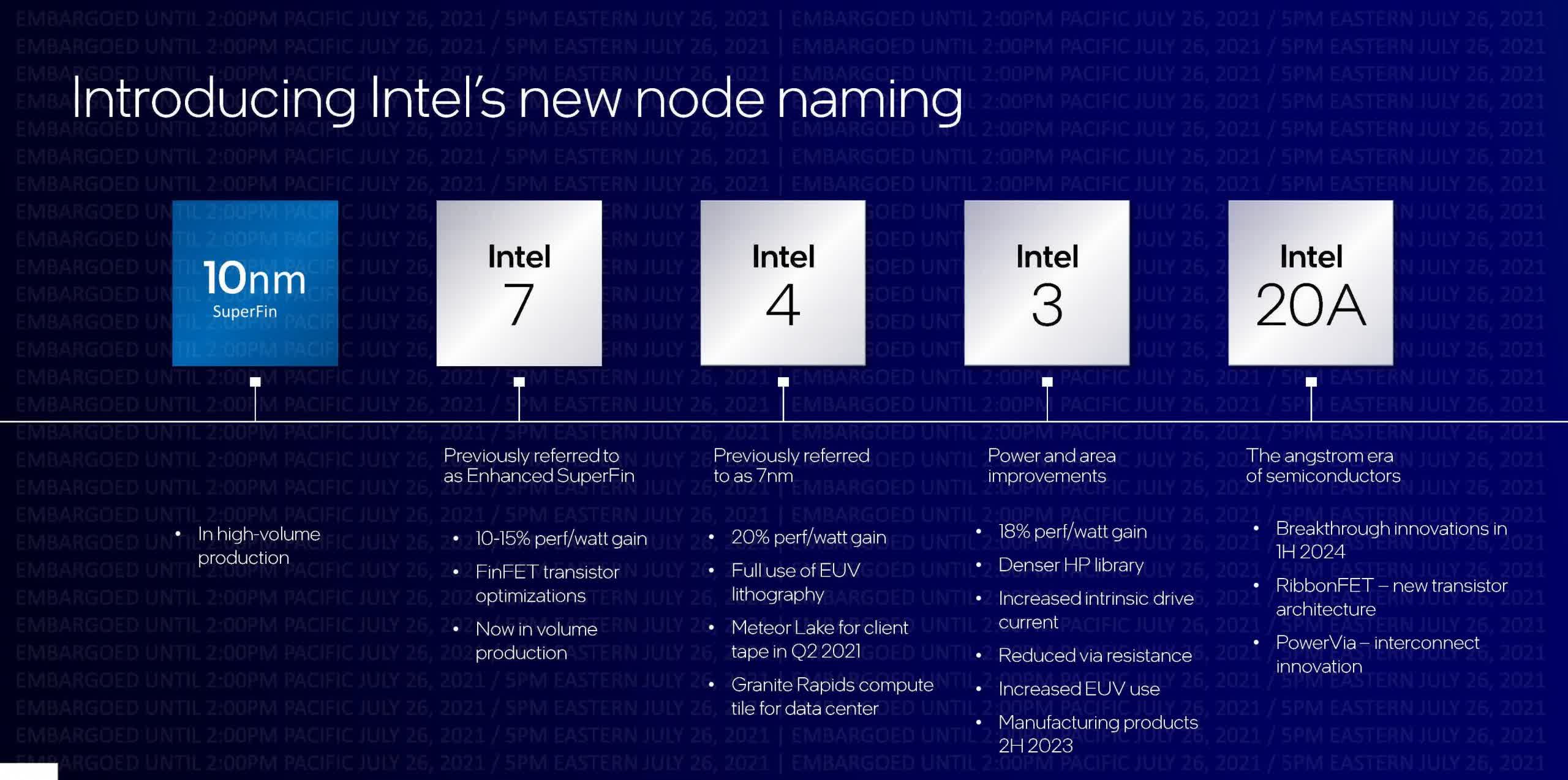Rumor mill: Intel has reportedly secured the majority of TSMC's 3nm process node capacity for next year and is said to be using the technology to create three new CPUs and a GPU. If true, such a move would put pressure on rivals AMD and Apple, who rely on the semiconductor giant for their chips.

According to Chinese publication UDN, production using the 3nm node is expected to start in the second quarter of next year, with mass production set to begin in the middle of 2022. Production capacity is expected to reach 4,000 wafers by May 2022, eventually reaching 10,000 wafers per month.
The report adds that Intel will tap TSMC's 18b Fab on the 3nm process node for four of its upcoming products: three CPUs and a GPU. In the case of the former, these are non-consumer processors, likely next-gen Xeon, designed for the server and data center markets.
Intel already has its own fabs and is allowing other companies, including Qualcomm and Amazon, to use its current and planned manufacturing capacity as part of its IDM 2.0 initiative. CEO Pat Gelsinger recently announced that the firm would be building a $120 billion mega-fab comparable to a "little city" in a yet to be decided US location. But it's likely that for the multi-tile-based design in Intel's upcoming chips, the company will utilize both its own fabs and TSMC's for production of different tiled dies.
Another advantage from Intel's point of view is that grabbing TSMC's 3nm production capacity could hamstring AMD's and Apple's plans for their own 3nm chips. AMD has already been struggling to secure enough 7nm chips from TSMC for its graphics cards and Ryzen CPUs—much of the production capacity on that node has been allocated to the PS5/XBSX consoles—and it won't want a repeat of the situation with 3nm.
https://www.techspot.com/news/90780-intel-has-reportedly-secured-majority-tsmc-3nm-production.html
